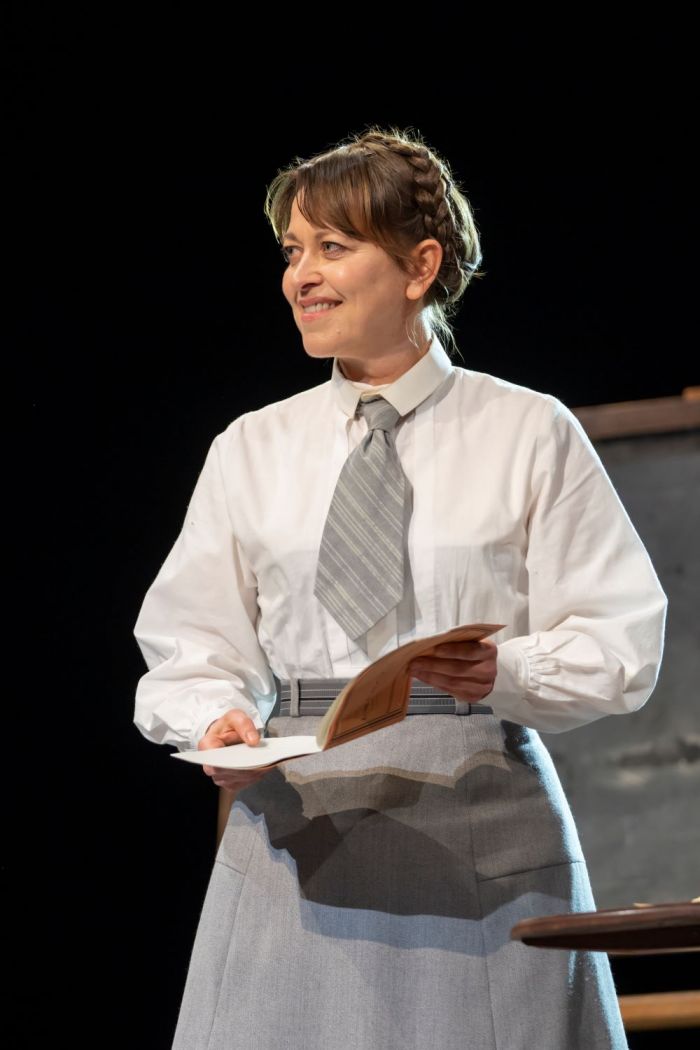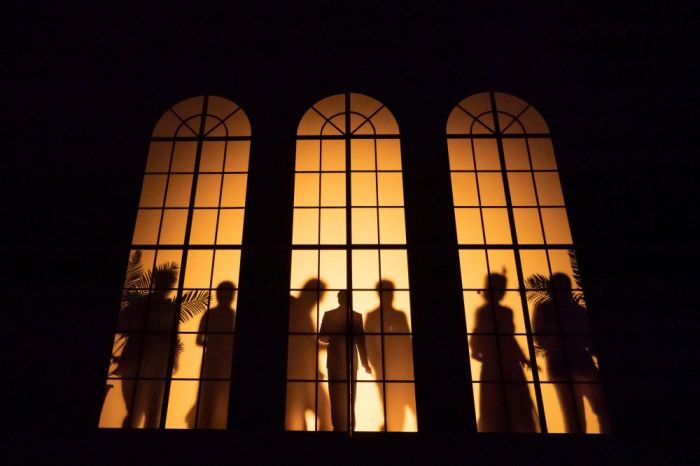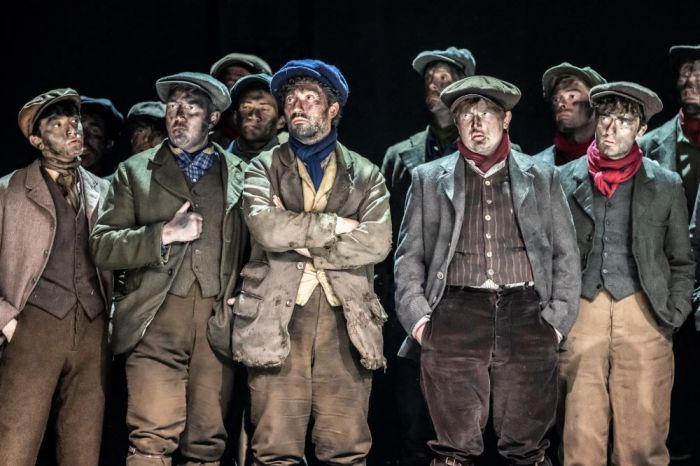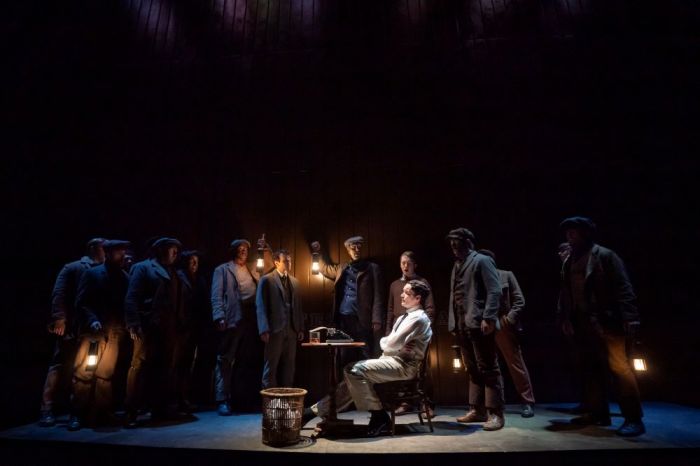
It’s over a decade since Nicola Walker assumed the role of the errant mother of the gifted but troubled boy-hero of The Curious Incident of the Dog in the Night-Time at the National Theatre, for which she won an Olivier award for her magnificently calibrated performance.
Now, having established herself as one of our finest talents on stage and screen in the meantime, Walker returns to the National to play the lead as an English teacher in a deprived Welsh mining village at the turn of the 20th century, who campaigns on behalf of a bright orphan boy. Walker’s performance here is superlative.
The relationship depicted in The Corn is Green is based loosely on the experience of its author, Emlyn Williams – perhaps best known for the thriller Night Must Fall. At a Welsh county school, a doughty Englishwoman’s dedication to him was transformative – he was spared a life of demoralizing drudgery down the pit and propelled towards attaining a scholarship to Christ Church Oxford.
Williams took on the role of his fictionalized self – Morgan Evans – at the 1938 premiere. The part of LC – Lily Christabel – Moffat (Miss), the “spinster” school mistress wedded to the value of education, has been played by a rollcall of celebrated names down the years, including Bette Davis in a film adaptation in 1945 and Katharine Hepburn in a TV movie in 1979. The play fell out of fashion, though, and there has been no major revival since 1985.
Miss Moffat is the embodiment of the teaching profession at its most tirelessly steadfast, dutiful and – to a hugely moving degree – self-denying. Walker's forte – as shown so superbly in the BBC drama The Split, which centers on the lives and work of a family of divorce lawyers – is her uncanny ability to convey admirable purpose; few eyes sparkle with such intelligence, few lips twitch with such subtlety, few frowns convey such concentration. There are also hints of melancholy within the self-containment.
Unsentimental and unflashy, here Walker projects the most minute details as though we’re watching her in close-up. This is especially the case at the pivotal moment in the play when this no-nonsense figure, brisk and impassive at the outset, pauses in the middle of examining the final exercise book of a batch she has decided to discard, feeling dispirited in her bid to set up a school. In the unsophisticated lyricism of sentences constructed by Evans, who has taught himself to read and write, she perceives potential that must be cherished, and her dawning realization is exquisitely communicated.
Miss Moffat is impelled by a belief that the life of the mind is essential, and the genius of Dominic Cooke’s production is that it makes her vision to life, theatrically. Cooke – a brilliant director who keeps triumphing at the National – has gone for a nonfigurative, non-naturalistic approach, making a moving memory play out of the old-school script, in which an incarnation of the author himself delivers the stage directions and character descriptions.
Gareth David-Lloyd portrays Williams as a suave young man escaping a society jazz age dance to conjure from the past a collection of coal-blackened, cloth-capped miners, who – heartily singing in Welsh – serve as a melodious chorus. The mood is at times reminiscent of Under Milk Wood.
Iwan Davies’s effortlessly bright, brooding Evans emerges from the pits of youth and callowness and stands on the verge of a great escape from all he has known, his sense of self in the balance. In the first half, on a bare stage, there’s a rich comedy to the blinkered, small-town attitudes, typified by boisterous youths and the chauvinistic, pretentious philistine local squire (Rufus Wright). In the second act, we find the characters transposed to a proper living-room set by ULTZ, and the dramatic stakes are raised, especially by the conniptions of bodacious local hussy (Saffron Coomber’s Bessie Watty). A battle of female wills ensues over Evans’s future. Without wanting to spoil the twist, Miss Moffat’s sense of duty and sacrifice is pushed to the limit, lending her the strength and nobility of a tragic heroine.
Artful, affecting, and above all, immensely entertaining, what this production emphasizes is how formative our school days really are, and how vital the human connections forged within them.
The Corn is Green runs at The National Theatre until 11 June
For tickets, please visit nationaltheatre.org.uk




Elisabeth Rushton
Elisabeth has over 15 years of experience as a luxury lifestyle and travel writer, and has visited over 70 countries. She has a particular interest in Japan and the Middle East, having travelled extensively around Saudi Arabia, Oman, Jordan, and the UAE. A keen skier, she has visited over fifty ski resorts around the world, from La Grave to Niseko. She writes about a broad spectrum of subjects...(Read More)










